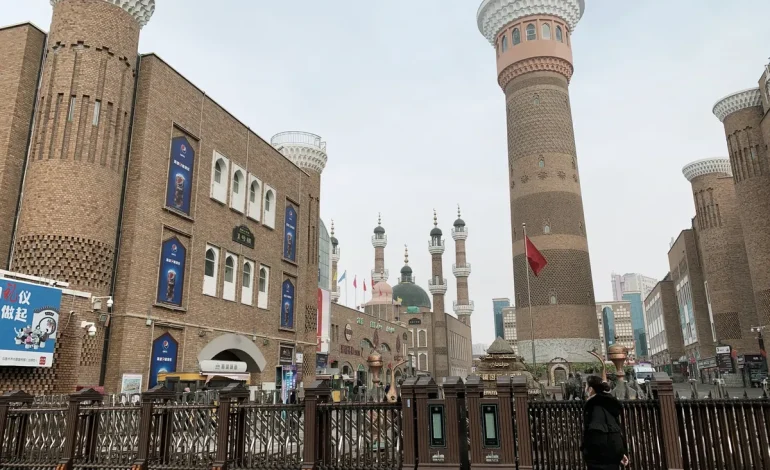China is accelerating its artificial intelligence ambitions by building a network of large-scale data centers in Xinjiang, a remote and historically sensitive region in the country’s northwest, Bloomberg reports.
The initiative reflects the country’s broader push to secure leadership in next-generation technologies, even as it faces international scrutiny over its human rights record and increasing tension with the United States.
Journalists recently visited the Yiwu area of Xinjiang, located on the edge of the Gobi Desert, where several massive data centers are under construction. The region offers a unique combination of advantages for such infrastructure: abundant access to renewable energy from solar and wind sources, plentiful coal, low land costs, and cool weather that reduces the need for energy-intensive server cooling.
The facilities are expected to host tens of thousands of high-end computer chips, many of which are manufactured in the United States—potentially adding a new point of friction in the already complex US–China relationship. US export controls have sought to limit China’s access to advanced semiconductors due to concerns about military applications and national security.
The choice of Xinjiang as a key AI development site carries political implications. The region, which is roughly the size of Alaska, is home to large populations of ethnic minorities, including Kazakhs and Uyghurs, and has been the focus of international criticism over alleged human rights violations. While Beijing strongly denies accusations of abuses, Xinjiang has become a flashpoint in China’s relations with Western governments.
Authorities have made efforts in recent years to rebrand the region, shifting from heavy surveillance and security measures to an emphasis on economic development. That includes major investments in infrastructure, housing, and emerging sectors such as renewable energy and digital technologies. Xinjiang’s development is also viewed as key to maintaining social stability and boosting employment — long-standing priorities for Chinese leadership.
Despite the high-tech sheen of the new data centers, access to the area remains tightly controlled. Foreign journalists reported visits from local police during their trip, including being escorted to a station to apply for special permits. Multiple requests for interviews with data center operators were declined, canceled, or left unanswered.
The government’s messaging has been consistent: integrate Xinjiang more deeply into China’s national economy, develop high-value industries, and portray the region as peaceful and prosperous. Part of that strategy includes hosting guided tours for foreign diplomats and journalists and amplifying positive narratives through state media and online platforms.
The construction of AI infrastructure in Xinjiang also comes as Chinese companies look to counter global supply chain vulnerabilities and geopolitical pressure by relocating more computing power inland. These developments align with China’s strategic goal to become a world leader in artificial intelligence by 2030.
Still, the concentration of such activity in a politically sensitive area, and the possible use of US-made chips in these data centers, could add to growing tensions between Beijing and Washington. The US has already tightened export restrictions and could respond further if it finds that American technology is helping to advance China’s AI goals in regions of geopolitical concern.









The latest news in your social feeds
Subscribe to our social media platforms to stay tuned